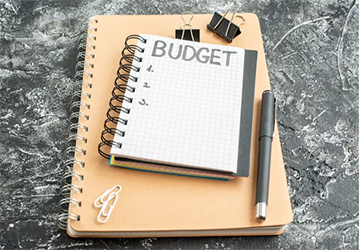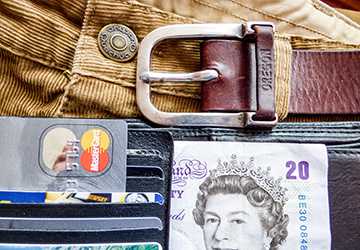How to Achieve Financial Freedom Before Retirement
Author: atika
Economic independence is interpreted differently by every person. It can be associated with the ability to purchase anything and whenever one wants to. For many, it can mean not worrying about unexpected costs or bill payments. It may mean having sufficient money for retirement for some people. It is possible to attain monetary independence, and you can do it before retiring. Being economically independent allows you to make life decisions without worrying about how your actions affect your finances. This article will look at how you can achieve economic independence. Let's get started!

Learn Budgeting Skills
It would help if you had a plan for your finances to succeed. Instead, you'll wonder where your money went each month's end! That is a formula that results in economic disaster rather than monetary independence. Living without a budget makes it impossible to achieve economic independence. Before the month starts, assign a task to every dollar, and then monitor how much you spend throughout the month. You can always change how much you pay in those categories if you regularly overspend or underspend.
Track Your Spending
Monitoring your spending is an essential next step towards attaining monetary independence. There are various methods you can use to achieve this. Keeping track of your spending is a crucial step towards being financially independent because it increases your level of responsibility. It also identifies many extra costs you spend just because you made a last-minute purchase. A last-minute purchase is a sign of losing control and might stand in the way of your goal for economic independence. As a result, you must maintain discipline by regularly monitoring how much you spend.
Pay Off Your Debt
In many ways, monetary independence is made possible by paying off large debts. Please take a close look at your debts and create a plan to pay them off strategically. There are mainly two ways to pay off debt. Initially, you pay off your lowest debt using the snowball method. In other words, as you tick off a task on your checklist, go on to tackle the more significant debts. The avalanche strategy is the second way to pay off debt. It includes paying off the debt with the highest interest rate first, then moving on to the lower rates. Make careful choices about your spending and only borrow money when necessary to avoid building up additional debt.
Create Additional Sources of Income
More than a 9 to 5 job is required for most people serious about achieving economic independence. In other words, consider alternate possibilities for earning money besides a job. Some experts even advise people to find up to five different sources of income. You have a single source of income if you work a 9 to 5 job. You now need to find more! One of two methods will result in more money. The first strategy is active income, in which time is exchanged for cash. The other strategy for earning extra income is to work on it passively, meaning that after you put in the initial effort, the money will continue to add in regularly.
Explore other sources of income, such as digital product development and sales, dividends from investments, and passive income sources like real estate rentals. Having more than one source of income can help you become more stable and resilient.
Live Below Your Means
You are saving less money than you earn, which means living below your means. It revolves around managing how much you spend carefully. Look for ways to reduce extravagant spending, such as preparing meals at home rather than going out to eat or buying recycled products rather than new ones. You can speed up your path to monetary independence and save more money by adopting an economical lifestyle. Living a minimalist lifestyle is relatively easy. It involves learning to differentiate what you need from what you want and making tiny changes that significantly improve your financial well-being.

Invest for the Future
Investing is the most innovative move toward achieving monetary independence. The first step is to take advantage of the power of multiplying by investing as much as you can. Next, raise your investments annually by a percentage that equals an increase in your income. Achieving a portfolio percentage of 50–60% in equities as soon as possible is also essential. Maintain a 60-40 split between equity and non-equity assets as a general recommendation. However, you may adjust that ratio per your level of risk tolerance. Think about investing some of your savings in low-risk investments like the stock market or mutual funds. Your money can increase, helping you build assets and reach your life goals.
Consult an Advisor in Finance
Some people feel confident handling their finances and assets, while others will find this last step essential. It can be helpful to have annual meetings with a tax professional or financial planner to evaluate your present circumstances and develop plans. These people aren't emotionally involved in your money choices, and an impartial professional can offer balanced guidance and suggestions you need to investigate. If you don't need professional advice, commit to learning more about finances independently.
Conclusion
In conclusion, anyone willing can reach their goal of monetary independence before retirement. You can pave the way to a future in which you can afford to live life on your terms by setting clear goals, making sensible budgets, saving, and investing, and creating multiple sources of income. Remember that what matters is not your income but your ability to manage your finances. Start taking these steps, and you'll see yourself become monetary independent.





